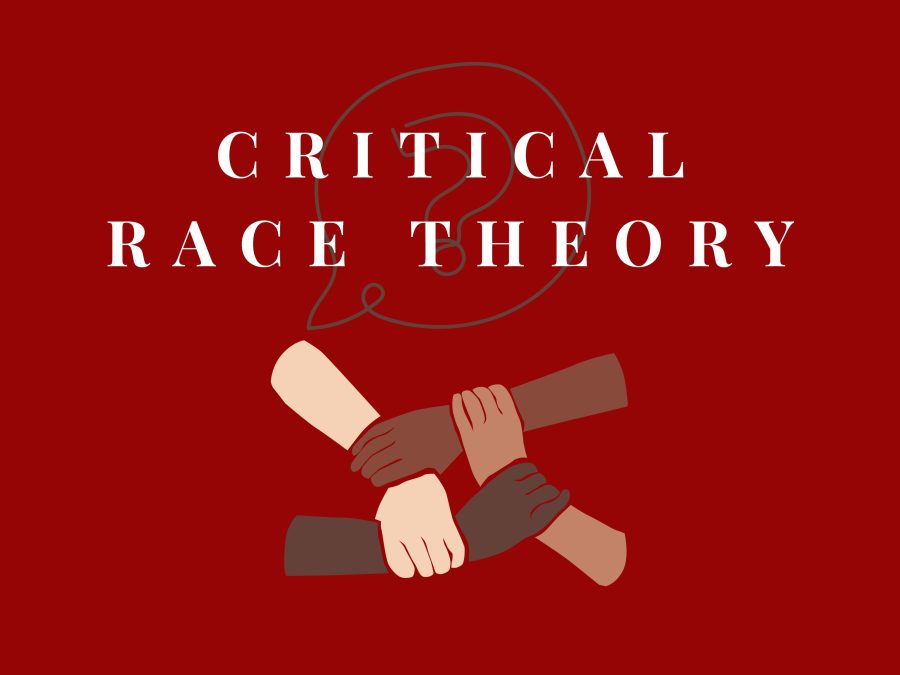The Controversy of Critical Race Theory
March 25, 2022
During Ketanji Brown Jackson’s confirmation hearing process in her path to becoming a U.S. Supreme Court justice, Texas Senator Ted Cruz (R) holds up the book Stamped (for Kids): Racism, Antiracism and You by Ibram X. Kendi and Jason Reynolds and demands, “On Page 33, it asks the question, ‘Can we send White people back to Europe?’ … Are you comfortable with these ideas being taught to children as young as 4?”
Cruz, alongside several others, question and oppose the idea of “critical race theory” as it grows in prevalence and controversy in the political landscape.
Critical race theory has frequented heated discussions and debates for years, but its definition tends to get lost between layers of persuasion. Essentially, the idea seeks to address systemic race in the U.S. and how the nation’s laws have been shaped by it.
As more schools continue to implement Critical Race Theory into their classrooms, Republican-led legislations have sprouted up across the country in order to combat this wave. Currently, 19 states are considering policies or bills that promise to restrict racial education in schools or other state agencies, with officials who back them arguing that school-taught ideas should not make people, much less kids, feel “discomfort” or “shame.”
Florida Governor Ron DeSantis (R), who introduced restrictions on education in diversity within schools and private corporations, said, “We won’t allow Florida tax dollars to be spent teaching kids to hate our country or to hate each other…[and] we must protect Florida workers against the hostile work environment that is created when large corporations force their employees to endure CRT-inspired ‘training’ and indoctrination.”
In several other states, similar anti-Critical Race Theory strides have been made. Mississippi Governor Tate Reeves (R) signed a law on Monday, March 14th, “banning ‘critical race theory’ and limiting education on race in schools.” The bill prohibits any public education institution from teaching “that any sex, race, ethnicity, religion or national origin is inherently superior or inferior; or that individuals should be adversely treated on the basis of their sex, race, ethnicity, religion or national origin.”
Additionally, South Dakota’s Governor Kristi Noem (R) led HB 1012 in March, a recently passed law that restricts the South Dakota Boards of Regents and of Technical Education and any institution under their control from influencing students to “personally affirm, adopt, or adhere to divisive concepts” and prohibits institutions from requiring training that “teaches, advocates, acts upon or promotes divisive concepts” from both teachers and students. Governor Noem has shown her support for the law, stating, “College should remain a place where freedom of thought and expression are encouraged, not stifled by political agendas.”
Georgia’s version of the controversial Floridian “Don’t Say Gay” bill, known officially as the Common Humanity in Private Education Act, also exhibits its own traits of anti-Critical Race Theory efforts, claiming that children in schools are being taught that “one’s race, gender, sexual orientation, color, or national origin irrevocably determines his or her place [in a] hierarchy of oppressor and oppressed.”
While these legislations sound good on paper, critical race theory experts have claimed that bills of these nature strategize to make the theory appear discriminatory because of its highlighting of systemic racism, subsequently reversing the progress made in diversity and inclusion. Opponents also state that the language is often too vague and could limit important discussions because of its fine boundaries.
“There’s long-term resentment against people of color speaking up for civil rights,” stated Justin Hansford, a Howard University law professor, asserting that claiming to not see race is being willfully ignorant, harming more than it helps.
Critical race theory may one day reach a point of compromise for both ends of the spectrum, but for now, political battles will continue to forge on in a tense landscape.






